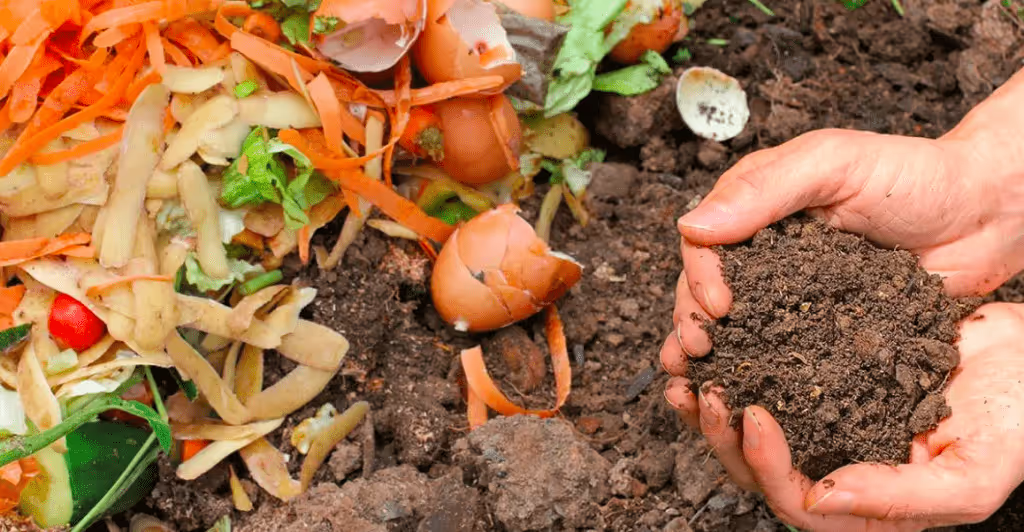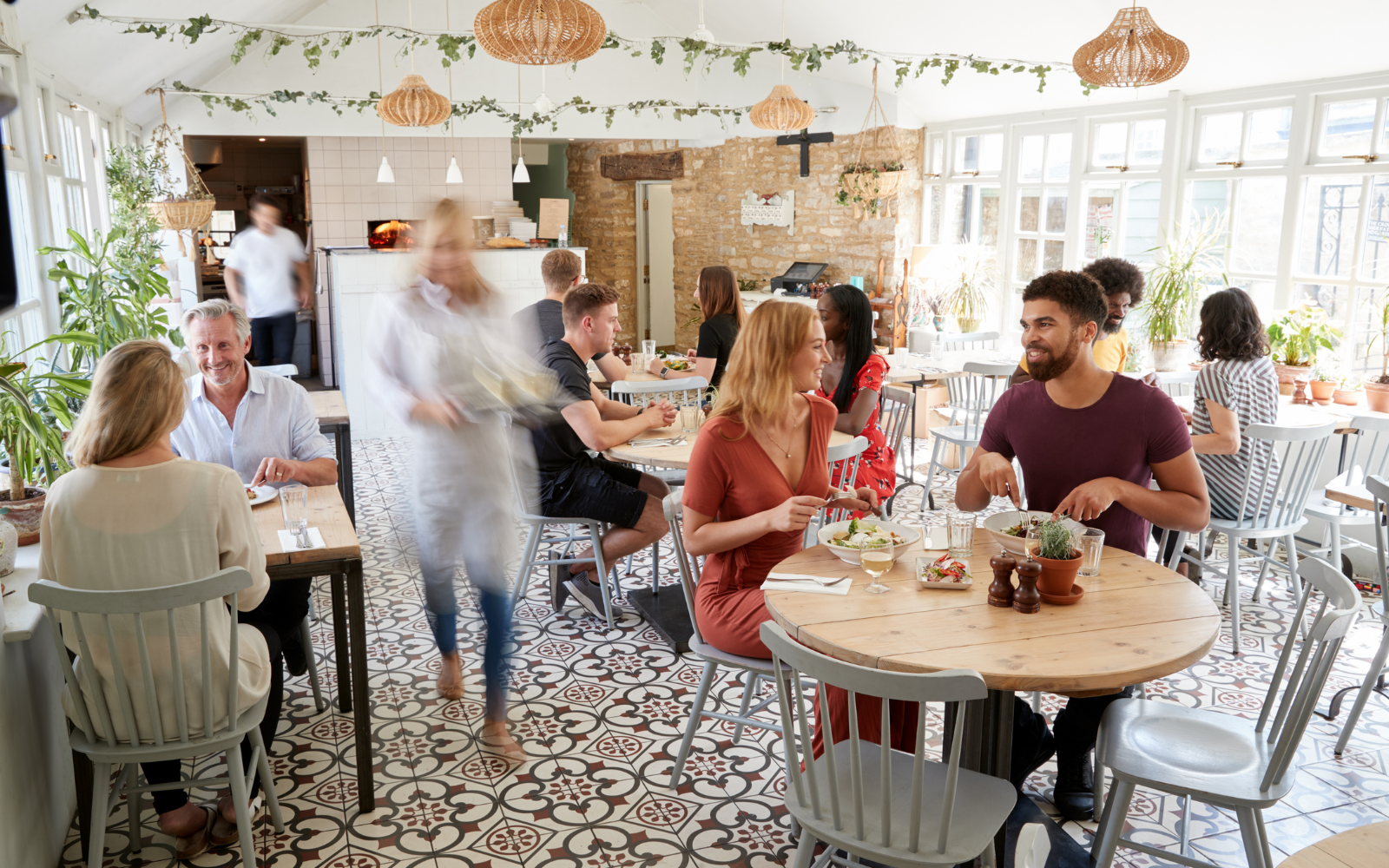12 Cafe Sustainability Tips

With our world ever-changing, issues like climate change and plastic pollution are being discussed more than ever before. Today’s consumers are increasingly committed to shopping with businesses that focus on sustainability, environmentally-friendly practices and waste reduction.
Whereas people used to choose their favourite cafes and restaurants based on the quality of the food, the atmosphere, value for money and customer service; many of us are now choosing where we dine based on Corporate Social Responsibility (CSR).
A recent Futerra study found that 88% of consumers not only want the brands they shop with to care about important societal issues, but actually expect them to. If a customer doesn’t feel that a brand is doing their bit to save the environment, there’s almost a 90% chance the brand won’t see that customer again.
This applies to everything from global chains, down to the small independent café down the road…
As a café owner, it’s never been more important to implement environmentally friendly practices into your business model. So what can you do?
Below, we explore a variety of café sustainability tips that will reduce your business’s environmental footprint and support sustainability. While some of these ideas might take some time to implement, many of them can easily be put into place today.
1. Limit water usage

Depending on size and popularity, the average café or restaurant can use as much as 20,000 litres of water in a single day. Naturally, any business dealing with food and drinks is going to consume a lot of water, but there are countless ways you can reduce your café or restaurant’s overall water usage.
Installing low-flow faucets, or taps that operate from a motion sensor, can save thousands of litres of water in the long run. Waterless urinals and water-efficient toilets are highly effective in saving water too, and that’s just the bathrooms!
Make sure your kitchen is equipped with Energy Star-certified dishwashers, ice makers and steamers.
As for the garden or patio area (if your café or restaurant has one), why not install water catchments? This way, you can use rainwater to keep your garden looking lush and inviting. You could also top up this natural water supply with any half-drunk glasses of water from customers, rather than simply pouring it all down the drain.
2. From plastic to paper…

This café sustainability tip should be pretty obvious – the less plastic your café uses, the better. Paper cups, recycled toilet paper and/or Tupperware containers instead of single-use plastic containers in the kitchen are just two options that can be implemented as early as today.
And of course, no article about cafe sustainability tips would be complete without discussing plastic straws. There are more than eight billion of them strewn across the planet’s coastlines!
With all the alternatives that are available now, there is no excuse for using plastic straws anymore. There are bamboo straws, metal straws, paper straws, and even lotus roots and pasta straws, plus countless others.
Many of them are far better options than plastic straws, having much less impact on the environment.
3. From paper to digital
Once you’ve converted as much of your plastic use to paper use as possible, you can then consider ways to reduce your paper usage as well!
More and more businesses are going paperless these days, and there’s no reason why cafes and restaurants can’t too.
You’ll notice it’s becoming less common to see a paper menu on each individual table of a restaurant.
%20Full%20stamps%20(2).png)
Business owners are transitioning to big blackboards above point of sale, or even digital menus.
If the menu is listed on your website, promote this fact with lots of signage around the shop to encourage customers to browse the menu on their smartphones.
Digital loyalty programs make going paperless a breeze! Allowing customers to accrue points and redeem rewards digitally rather than resorting to paper punch cards or plastic membership cards, is an easy step you can take towards being more sustainable, and it also provides huge benefits for your customers and your café.
A digital loyalty app, like Stamp Me, allows you to analyse your loyalty program activity and communicate directly with customers through Push Notifications and SMS to drive retention.
Check out our case studies to see how other cafes have successfully switched from paper punch cards to a digital loyalty program.
.avif)
As for keeping ourselves presentable while we eat, it’s pretty hard to “go digital” with napkins… however, there is a wide range of eco-friendly napkins available that break down much faster than traditional napkins.
Biodegradable packaging is already quite common for take-away food and coffee cups. The more you can reduce the amount of waste generated by your take-away products, the better. Of course, you can also incentivise customers to bring their own reusable cups from home by offering a discount for those who do.
.png)
4. Support local farmers and business owners

Getting your supplies – produce, condiments, packaging products, you name it – from local sources is an eco-friendly solution for a multitude of reasons.
The first of which is simple logistics. When you buy local, there is less transport required, which equals lower carbon emissions compared to shipping or flying. This is commonly known as food ‘air miles’.
Of course, the other benefit to buying local is that you are supporting small, independent businesses (like yours, probably). The produce is much more likely to be fresh and organic, rather than mass-produced and pumped full of preservatives and other chemicals.
Find out what produce is being grown or made nearby, and open the lines of communication. Let people know that you are eager to start sourcing local produce and invest your capital back into the local community.
Another alternative is to start growing your own produce!
Sure, maybe it isn’t feasible to create a large-scale farm on-site in the middle of town, but perhaps you could grow your own herbs and spices on the roof, or a small amount of vegetables in the backyard.
Make your own jam in the café/restaurant kitchen using local berries, and see if there’s a local beekeeper or bee farm nearby that you could purchase your honey from. The same goes for cheese, milk and so on.
5. Waste not, want not!

When done properly, the amount of actual garbage that your café or restaurant is contributing to landfill on a weekly basis can be quite miniscule.
Let’s start with food waste. In the UK alone, 600,000 tonnes (which is a third of all food that the nation produces annually) goes to waste each year… a third!
All your food waste (both from inside the kitchen and from customers’ plates) can be donated to local farmers for compost. Any food left at the end of the day that isn’t suitable for serving tomorrow can be donated to homeless shelters.
It’s no secret that used coffee grounds make great fertiliser, so why not make it known to customers that they can help themselves to bags of your coffee grounds to fertilise their garden?
If that’s not moving it fast enough, give it to the local farmers to fertilise their crops. There will always be someone who is more than happy to take your used coffee grounds off your hands!
Get separate bins for food waste, glass, plastic, cardboard, and general rubbish. The more organised your recyclables are, the easier the whole process becomes. Earth911 is a great resource for knowing what recyclables can be grouped together, what is recyclable and what isn’t, and general ideas for recycling and repurposing other materials.
By getting a little creative with your recycling and repurposing initiatives, you’ll notice a dramatic drop in the amount of trash you’re putting out for the garbage man each week.
6. Reduce your cafe’s energy consumption

Businesses within the hospitality industry are known for churning through electricity on a much larger scale than other industries. Day in, day out, all those lights, ovens, fridges, dishwashers, coffee machines, air conditioning, TVs, music… it all adds up to a hefty energy bill.
The first and easiest step is cracking down on things like non-energy saving lightbulbs and unnecessary overuse of air conditioning. Depending on the climate where you’re situated, you could enforce a “1-hour on, 1-hour off” system that would literally cut your air conditioning costs in half.
The long-term energy savings far outweigh the upfront costs of installing decent insulation in the roofing and walls. The same goes for Energy Star-rated microwaves, ovens, exhaust fans and all the appliances mentioned earlier for water efficiency methods.
Make sure your staff are switching off anything that doesn’t need to be left on overnight when they close up shop for the day.
If you’re really serious about reducing your café or restaurant’s energy usage, consider installing solar panels, solar water heaters, wind turbines and so on.
An estimated eight out of 10 restaurants are using eco-friendly lighting these days. Skylights are great for taking advantage of natural light during the day, while LED lightbulbs are an environmentally-friendly solution for the evenings.
7. Throw away your hazardous chemical-based cleaning products

When considering ways to steer cafes and restaurants towards eco-friendly solutions, many business owners overlook one of the most important areas – cleaning.
Switch to environmentally friendly detergents and cleaning products, and rid your café/restaurant of all hazardous chemicals.
Ditch your hand-dryers and paper towels, and opt for ordinary hand towels in the bathrooms instead. Buy your eco-friendly hand soap in bulk, and use it to top up the bathroom dispensers rather than constantly buying new plastic soap bottles.
8. Recycle and repurpose old furniture and décor

This point is a great opportunity to have some fun and make your business unique. Extend your commitment to using sustainable products into every aspect of the business – including the furniture your customers sit on and eat at!
Recycled or salvaged tables and chairs give off a trendy vibe and are often low cost. Otherwise you can opt for bamboo-based furniture if you’d rather that style.
Table cloths and even cloth napkins can be washed and reused, just like real mugs, glasses and dishes. Encourage customers to ask for their coffee in a mug if they’re dining in, for instance, rather than disposable cups.
Customers will notice that you’ve implemented these initiatives, and they’re likely to become more loyal as a result, as you’ve made it easy for them to support sustainable practices simply by eating at your restaurant instead of your less eco-friendly competitors.
9. Offer more vegetarian options on the menu

Encourage customers to consume less meat, by adding more vegetarian options to the menu. Cutting our meat consumption on a global scale is one of the best things the human race can currently do for a more sustainable future.
Let’s say your café serves a Thai green curry – there’s no need to put “vegetarian Thai green curry” on the menu. Growing vegetables requires less water, less green spaces and cheaper transportation costs.
10. Dial down your pollution output as much as possible

Imagine if every business actively sought ways to help reduce pollution. As a café owner or restaurant manager, you can do your bit by enforcing some of the following initiatives:
- Introduce a strict “no car” delivery policy; only pedestrian or bicycle deliveries
- Create a safe place for staff to store their bicycles during their shifts, to encourage them to ride to work
- Only use cleaning products that are made with natural ingredients
- Only buy organically farmed produce (where possible)
- Offer a bonus to employees who share a car to work
11. Get your staff on-board

If you create a workplace culture where your employees feel comfortable voicing their ideas and opinions, then you’re much more likely to hear suggestions from your staff on other ways your café/restaurant can become a truly sustainable and eco-friendly business.
Not only is this good for team morale, but it highlights your company values and encourages staff to feel positively about the business they work for. Take the time to educate new employees on the importance of recycling, sustainability and eco-friendly products and techniques.
From the chef to the barista, the waitstaff to the admin team, there are things that can be done in every aspect of the business to reduce your footprint and promote eco-friendly practices.
If you don’t have a manager for each department of your cafe or restaurant, perhaps you could assign someone from each area to be in charge of sustainable practices (policing it, coming up with new suggestions, and so on).
It’s much easier to put these initiatives in place when the whole team is on the same page, sharing a common goal to reduce your café or restaurant’s environmental footprint.
12. Get your customers on-board

Now that your staff are on board, it’s time to get your customers on board!
As I mentioned at the very start of this article, people generally feel stronger than ever about hot topics like sustainability and pollution/waste reduction.
Make it clear that you are passionate about sustainable practices, and that you want customers to get involved.
Gestures like donating 10% of all purchases to a good cause, or hosting events like beach and park clean-ups, give people a way to make a difference in their community without putting strain on their budgets or locking them into a commitment.
Explain to customers your train of thought behind some of the creative ideas you’ve gone ahead with, like giving away free bags of used coffee grounds, making home-made jam on-site and growing your own parsley, basil and coriander in the backyard.
Use your social media accounts to promote your dedication to being an eco-friendly business, and ask customers for ideas on how to bring in more sustainable techniques and methods.
Make your cafe more sustainable with a loyalty program
Another incredibly useful tool for promoting your eco-friendly strategies is your loyalty program (also, if you don’t have a loyalty program, here are a whole host of reasons to get one).
By finding creative ways to incorporate your café or restaurant’s commitment to sustainability into your loyalty program, you can actually incentivise customers to follow suit, and thus spread awareness on the importance of using eco-friendly products.
Much the same way that MasterCard rewards its customers for sustainable shopping, you can offer discounts for customers who choose your more sustainable or organic offerings. Reward them for bringing their own reusable cups, or you can even offer them the choice of donating their loyalty program rewards to a good cause, for example.
The tight relationship between customer loyalty and good corporate citizenship is not a new concept.
In fact, by embracing sustainable practices and working towards running the best environmentally friendly café or restaurant you can run, you will probably notice a spike in customer retention as well.
So what are you waiting for? You can take the first step towards becoming an eco-friendly café or restaurant right now, just by organising your trash properly and removing your paper menus!

Enter a few details based on typical customer behaviour to estimate the revenue uplift and ROI a loyalty program could deliver.






.webp)